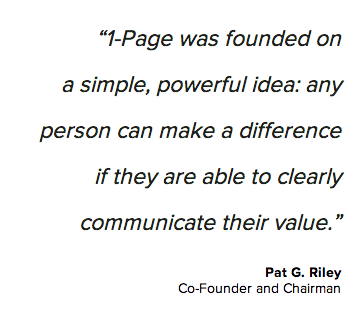It’s one thing to offer gamification incentives to keep customers and employees engaged, but is it really another to offer incentives for job hopefuls? Not according to Saul Minkoff, co-founder of Pulse Savings. Minkoff teamed up with 1-Page, a hiring gamification startup, to change the way members joined his team.
After years of experience in a field driven by innovation, Minkoff wanted to avoid “being biased by school names or years of experience.” Instead, he chose to challenge candidates to show off their skills. Using classic gamification techniques such as leveling, badges, challenges, and public statuses, candidates became truly engaged in the application process, giving them the opportunity to live up to and exceed their résumés.
Minkoff was blown away by the success of the program. “Candidates surprised us with proposals and ideas that my team and I [had] never thought of and that would have never come through a resume or during the interview.”
Take a peek at one of their example proposals here.

And Minkoff isn’t alone. Tech startups and giants alike are employing similar gamification techniques in their hiring processes. Take the Google Code Jam, a program that runs similar to a reality show competition, where innovators and job-seekers solve complex coding issues to strut their stuff for $50,000 in prizes and a shot to work at Google.
The success of hiring gamification programs like these benefit from the same psychological processes that make all gamification programs so successful. Mammals love to play, and competitions are fun games. The average hiring process, while often abusing the term “highly competitive”, feel much more like ‘playing’ the lottery than actually getting to compete and see how you stack up to your competition.
The resume has been a staple of job-hunting for decades. The formula is well-known for job-hunters: list your relevant experience and skills, send your resume in, and cross your fingers. For businesses, the process usually involves using a computer to scan hundreds of resumes for keywords. Resumes that don’t fit the bill are thrown out – along with potentially excellent candidates. The candidates that are left often have great resumes, but aren’t necessarily great matches.
1-Page replaces this murky process with a gamified competition system called the 1-Page Proposal. The system works as follows:
- Companies write a hypothetical or actual business challenge based around a job position they’re hiring for. They invite candidates to view and complete this challenge.
- Candidates respond to the challenge in the form of a 1-page proposal that suggests a specific solution and how they would implement it using their unique skills and expertise.
- Companies then track candidates’ progress, rate their proposals, and compare the top-rated candidates.
- In the long-term, companies can view reports and statistics to see how effective the 1-page proposal method is on their hiring strategy.
Challenge-based systems aren’t entirely new to the hiring field. Google and Facebook both host coding challenges where top participants may earn a job offer for their efforts. Many other companies host smaller competitions, like this data-mining competition on Yelp. There are even similar hiring-based gamification startups – MindSumo, for example, publishes public challenges for students to complete.
What sets 1-Page apart is the control companies have over the process. Companies select their own candidates to complete challenges – this means that a company can, for example, invite in-house candidates for a new position. A company could even take top candidates from one challenge and feed them into a second challenge.
1-Page isn’t just for hiring, either. By using a real challenge and proposing it to employees, a company can source ideas for creative solutions, narrow down candidates for promotion, or even test the mettle of current business processes.
Tech companies are currently leading the charge for better hiring solutions, largely because they rely on low staff turnover and cultural meshing between new employees and their co-workers. But with pre-built solutions like 1-Page, other industries may not be far behind. There may even come a day when the trusty resume is replaced by gamified hiring.
The lesson here is that innovative fields need to be innovative when finding the right candidate for the job. And competitive job fields need ways to truly let candidates compete in a meaningful way. Gamification could soon cause a shift in the way many of us find our next job.








